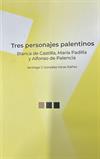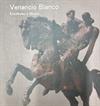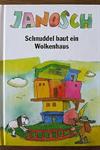
The White Tiger
by Aravind Adiga | Literature & Fiction | This book has not been rated.
ISBN: 9781843547204 Global Overview for this book
ISBN: 9781843547204 Global Overview for this book
2 journalers for this copy...
Review
"'In the grand illusions of a 'rising' India, Aravind Adiga has found a subject Gogol might have envied. With remorselessly and delightfully mordant wit The White Tiger anatomizes the fantastic cravings of the rich; it evokes, too, with starting accuracy and tenderness, the no less desperate struggles of the deprived.' Pankaj Mishra"
What makes an entrepreneur in today's India? Bribes and murder, says this fiercely satirical first novel. Balram Halwai is a thriving young entrepreneur in Bangalore, India's high-tech capital. China's Premier is set to visit, and the novel's frame is a series of Balram's letters to the Premier, in which he tells his life story. Balram sees India as two countries: the Light and the Darkness. Like the huddled masses, he was born in the Darkness, in a village where his father, a rickshaw puller, died of tuberculosis. But Balram is smart, as a school inspector notices, and he is given the moniker White Tiger. Soon after, he's pulled out of school to work in a tea shop, then manages to get hired as a driver by the Stork, one of the village's powerful landlords. Balram is on his way, to Delhi in fact, where the Stork's son, Mr. Ashok, lives with his Westernized wife, Pinky Madam. Ashok is a gentleman, a decent employer, though Balram will eventually cut his throat (an early revelation). His business (coal trading) involves bribing government officials with huge sums of money, the sight of which proves irresistible to Balram and seals Ashok's fate. Adiga, who was born in India in 1974, writes forcefully about a corrupt culture; unfortunately, his commentary on all things Indian comes at the expense of narrative suspense and character development. Thus he writes persuasively about the so-called Rooster Coop, which traps family-oriented Indians into submissiveness, but fails to describe the stages by which Balram evolves from solicitous servant into cold-blooded killer. Adiga's pacing is off too, as Balram too quickly reinvents himself in Bangalore, where every cop can be bought. An undisciplined debut, but one with plenty of vitality.
This book is going on a special NSSHCAS trip. Happy Reading!
"'In the grand illusions of a 'rising' India, Aravind Adiga has found a subject Gogol might have envied. With remorselessly and delightfully mordant wit The White Tiger anatomizes the fantastic cravings of the rich; it evokes, too, with starting accuracy and tenderness, the no less desperate struggles of the deprived.' Pankaj Mishra"
What makes an entrepreneur in today's India? Bribes and murder, says this fiercely satirical first novel. Balram Halwai is a thriving young entrepreneur in Bangalore, India's high-tech capital. China's Premier is set to visit, and the novel's frame is a series of Balram's letters to the Premier, in which he tells his life story. Balram sees India as two countries: the Light and the Darkness. Like the huddled masses, he was born in the Darkness, in a village where his father, a rickshaw puller, died of tuberculosis. But Balram is smart, as a school inspector notices, and he is given the moniker White Tiger. Soon after, he's pulled out of school to work in a tea shop, then manages to get hired as a driver by the Stork, one of the village's powerful landlords. Balram is on his way, to Delhi in fact, where the Stork's son, Mr. Ashok, lives with his Westernized wife, Pinky Madam. Ashok is a gentleman, a decent employer, though Balram will eventually cut his throat (an early revelation). His business (coal trading) involves bribing government officials with huge sums of money, the sight of which proves irresistible to Balram and seals Ashok's fate. Adiga, who was born in India in 1974, writes forcefully about a corrupt culture; unfortunately, his commentary on all things Indian comes at the expense of narrative suspense and character development. Thus he writes persuasively about the so-called Rooster Coop, which traps family-oriented Indians into submissiveness, but fails to describe the stages by which Balram evolves from solicitous servant into cold-blooded killer. Adiga's pacing is off too, as Balram too quickly reinvents himself in Bangalore, where every cop can be bought. An undisciplined debut, but one with plenty of vitality.
This book is going on a special NSSHCAS trip. Happy Reading!











